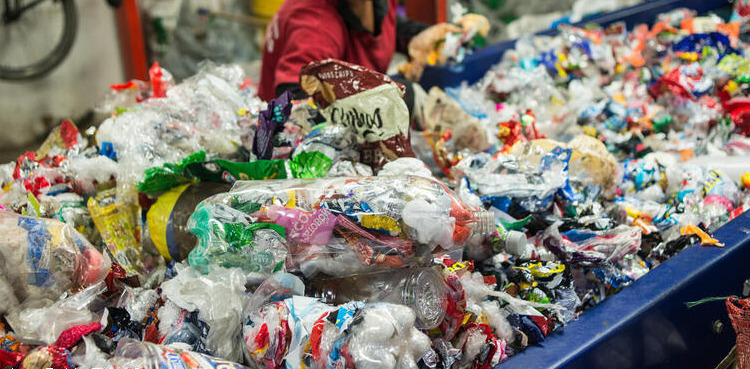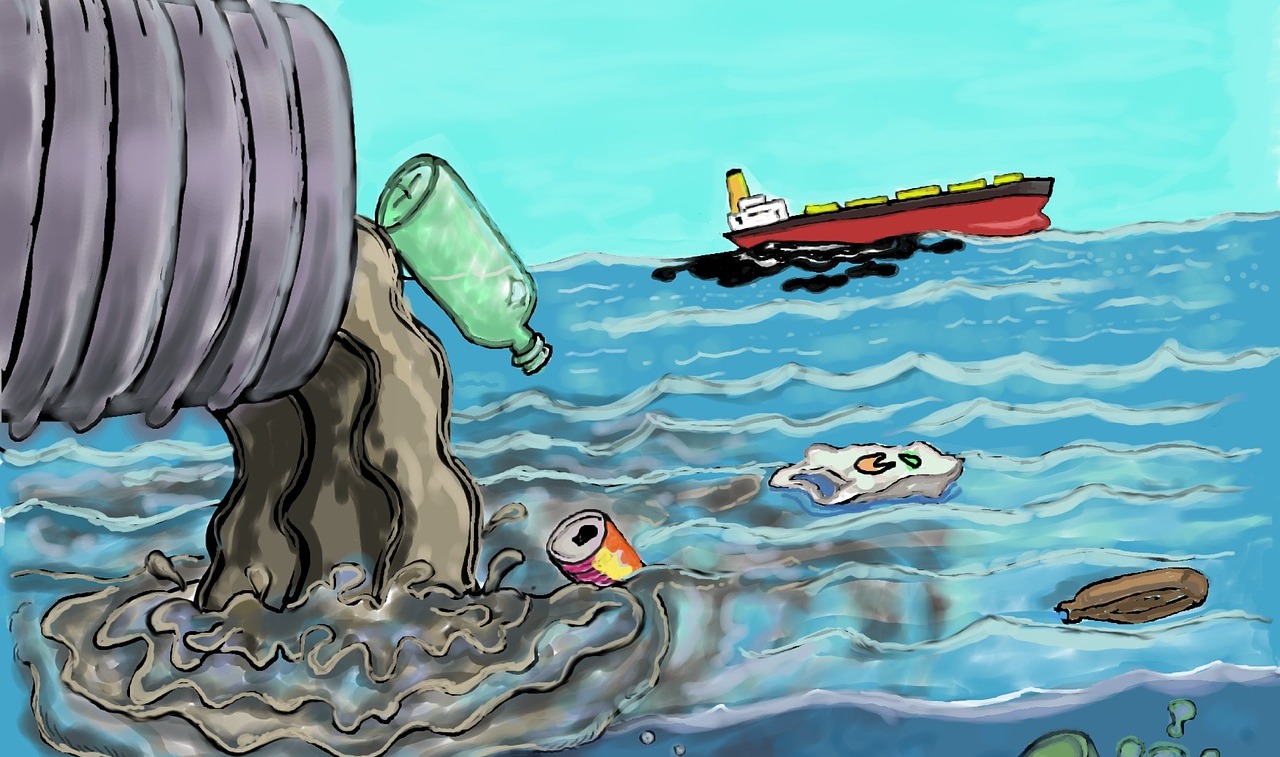Domestic trash industries could play a critical role in managing waste generated by households, businesses, and communities. And in theory, it could be an important contributor to a better and more sustainable environment.
But while there are exceptions, there are too many instances in which such is not the case, and the converse is true. And there are many reasons for this sad state of affairs.
Corruption
An important reason is that the opportunity for corrupt practices is many, coupled with the difficulty of oversight. Domestic trash industries in many instances lack transparency, accountability, and ethical practices.
Corruption is manifest in various forms, including bribery, embezzlement, fraud, and collusion, undermining the industry’s integrity and sustainability. It may also involve mismanagement of funds allocated for waste management projects, infrastructure development, or recycling initiatives. Embezzlement, kickbacks, and financial irregularities are huge drains on resources allocated for such purposes away from essential waste management efforts.
Such practices may be perpetuated by the influence of cartels, organized crime syndicates, and illicit networks seeking to profit from waste disposal activities. Collusion between waste management companies, government officials, and criminal entities leads to monopolistic practices, price fixing, and illegal dumping, compromising environmental regulations and public safety.
…And “Rubbish Is Big Business”
Within Europe, there is a busy trade of rubbish between cities. Hamburg, for example, takes waste from the Netherlands. Copenhagen imports waste from the UK. Vienna imports waste from Italy and Germany, which it converts into energy.
But much of the EU’s waste is exported outside of the bloc — often to Turkiye and India.
Globally, many countries import millions of tons of waste. Before 2018, China took in the most rubbish from around the world. It imported around 7.3 million tons of plastic waste and 29.9 million tons of paper waste per year. Several countries suffer from the consequences of waste mismanagement, when rubbish is shipped to places that don’t have the capacity to deal with it.
It is mistaken to think corruption and failures in trash collection mismanagement don’t happen in rich countries. For example, there is Rome, a city that appears to be constantly suffering on the brink of collapse, “defaced and degraded” as reported here on Impakter just a few years ago (in 2017). As a more recent article in the Guardian reported, the then mayor resigned in a widespread corruption scandal that included government trash collection funds.
As noted at the time, “Rubbish bins routinely overflow and the situation grew worse with a recent strike by refuse collectors.”
In 2023, the then new Mayor, Virginia Raggi, of the Five Star anti-establishment party, took action:
“To solve Rome’s waste processing problem, the city [has] signed a deal with Amsterdam’s Waste and Energy Company (AEB) to export 900-1800 metric tons of baled waste to the Dutch capital weekly. AEB will process the waste in its incinerators to generate energy.”
Trash Trade
Illegal trade in waste (or waste trafficking) is a growing problem. Illegal waste often ends up in illegal landfills and illegal storage sites or is burned in the open, causing harm to the environment and human health. Such waste flows are often hidden behind controlled or legal transboundary movements.
The distinction between the licit and illicit activities can be so opaque if an industry member is challenged, long lasting lawsuits for deep-pocket clients are the likely option. Mapping waste flows, better knowledge of the modus operandi of waste trafficking networks as well as national, regional, and inter-regional cooperation are possible ways for tackling waste trafficking but would require commitment by governments and institutions.
Some steps are being taken in the right direction by the United Nations, specifically the United Nations Office on Drugs and Crime (UNDOC). Noting that one-third of global waste is mismanaged and that some lower-income countries are especially affected as failure to safely manage waste disposal affects both public health and the environment and contributes to greenhouse gas emissions, UNODC recently set up a project — the Unwaste project in Southeast Asia — funded by the EU’s Foreign Policy Instrument. It is meant to tackle waste trafficking and support states in combatting waste trafficking in the region, including providing guidance to strengthen legal response:
Other Factors Which Contribute to Making it Difficult
Briefly, they include:
Inadequate Infrastructure and Resources
There are many countries and some regions with limited access to recycling facilities, collection services, and sorting technologies to manage trash. Perhaps more common in developing countries, some waste never gets to be handled by a system because of garbage burning practices, dumping of refuse into bodies of water, and so forth.
Without greater public awareness and investment in modern recycling infrastructure, municipalities in particular will struggle to implement comprehensive waste sorting programs.
Negative Environmental Impact and Sustainability:
Domestic trash industries often fall short of being a positive factor for the environment — and not infrequently they are the opposite. Continued dependence on landfills as a primary disposal method for waste is just one example.
Landfills pose risks to groundwater contamination, air quality, and soil degradation, threatening ecosystems and public health. Failure to adopt alternative waste treatment technologies, such as composting, waste-to-energy incineration, or resource recovery, perpetuates the environmental impact of landfilling.
Related Articles: Is Recycling as Green as We Think It Is? | That Issue of Waste Data … It’s a Circular Conversation | Should We Be Worried About Nuclear Waste? | ‘Dead White Mans’ Clothing’ Polluting the Global South | E-Waste Recycling Could Save Key Metals | Fast Tech ‘Seriously Rivalling Fast Fashion’: How Bad Is the E-Waste Crisis
Ineffectiveness of domestic and international industry and regulators to deal with plastic pollution and marine debris:
Improper disposal of plastic waste, lack of effective litter management, and insufficient recycling of plastics contribute enormously to the pollution of oceans, rivers, and ecosystems worldwide. Plastic debris poses significant threats to marine life, habitats, and human health.
As was noted in a recent Impakter article:
“…. addressing the full lifecycle of plastics — from extraction, petrochemical processing, manufacturing, and producer responsibility to disposal, recycling, leakage, and incineration. Looking forward, utilizing reuse and remanufacturing with more sustainable materials is also an important component. Under a circular economy that is more resource efficient and eliminates plastic pollution at a global scale, we can stop plastic pollution at its source, so it never reaches our communities and waterways in the first place.”
Ways to Foster Greater Accountability and Promote Sustainable Practices:
There are several ways to do this and they include:
- More intensive public awareness through outreach campaigns, school programs, and community engagement initiatives to promote sustainable behaviors and encourage responsible waste disposal habits.
- Investment in modern recycling infrastructure, such as sorting facilities, material recovery plants, and recycling technologies, to strengthen waste management systems and improve recycling rates.
- Embracing resource conservation, closed-loop systems, and sustainable production practices as a way to actively pursue economic potential benefits, transitioning the domestic trash industries to a more sustainable model.
- Designing products for recyclability, promoting reuse and repair options, and fostering collaboration across value chains can minimize waste generation and maximize resource recovery.
- Enhance and financially support regulatory frameworks, transparency measures, and enforcement mechanisms and punishments for the trash industry to combat corruption, promote ethical conduct, and ensure compliance with environmental standards. This could mean creating empowered independent oversight bodies, whistleblower protections, and anti-corruption policies to strengthen the industry’s reputation and integrity.
- Build partnerships among governments, businesses, civil society organizations, and communities to foster collective action, sharing best practices, and driving positive change in the domestic trash industry.
This is, of course, a long list of desired actions, requiring concerted and continuous actions by various stakeholders. One can hope that awareness of the extent of “trash” problems and the damage being done, will garner the attention it deserves.
Editor’s Note: The opinions expressed here by the authors are their own, not those of Impakter.com — In the Cover Photo: Waste management and recycling in Bogotá, Colombia, May 17, 2023. Cover Photo Credit: © Juan Pablo Eijo/Greenpeace.









